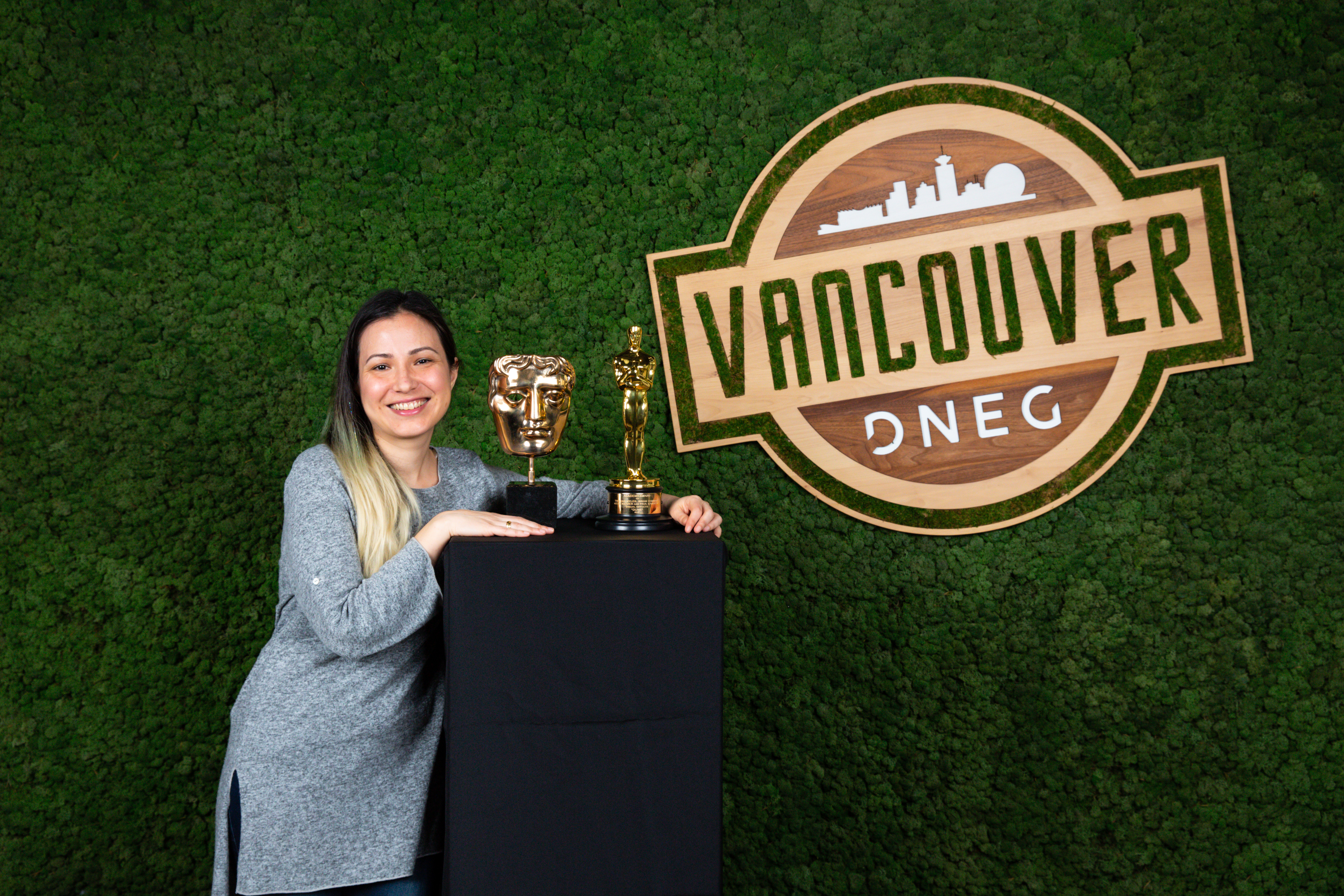Short Biography
YASEMİN HEP GÜLER - Visual Effects (VFX) Sr. Compositor 
- Undergraduate: Sabancı University – Visual Arts and Visual Communication Design, 2006
1. What exactly does your current job involve, and what does a typical day look like for you?
I am currently working in the post-production of a high-budget, VFX-heavy film at the Vancouver branch of DNEG as a Senior Compositor in Visual Effects. My days are usually very busy. I have been working from home for about five years now, since Covid. Every morning, we have a meeting on Zoom where the daily plan is set. Each of us has scenes we are working on; we discuss them, and the supervisor gives feedback on our work. Then we continue to improve the scenes based on these comments. At least once a day, we present our progress and receive feedback again. If the work is approved, it is sent to the client.
2. What did your VAVCD education at Sabancı University contribute the most to your transition into professional life?
After graduation, I worked for one year as a graphic designer at a multimedia company in Istanbul. My initial plan was to do a master’s degree in visual communication in the Netherlands, but I was not accepted. During that period, I realized that I was more drawn to moving images—cinema—rather than static graphics. My years at Sabancı greatly nurtured this interest. I watched incredible films from the library; there was a very knowledgeable librarian who always made great recommendations—unfortunately, I can’t remember his name. Those recommendations, the courses I took, and the guidance of my professors all deepened my love for cinema.
In addition, the Computer Club had a system where students could share their own films and music (quite innovative for its time, since online streaming had not yet been invented). That also greatly contributed to my film culture. Together with two close friends from Sabancı, I got accepted into the Academy of Art University in San Francisco. So I quit my job and went to the U.S. to pursue a master’s in Visual Effects.
At school, I realized that I loved the area of compositing the most and that I was talented in it. The visual language and practices I learned at Sabancı had a big impact on this decision. After graduating from the Academy of Art University, I started working as a VFX compositor. I worked for many years in the U.S. and the U.K., and for the last eight years, I have been living in Canada.
3. How did the research/creative production experience you gained at Sabancı University reflect on your current position?
Actually, I initially came to Sabancı University to study Social and Political Sciences. In high school, my track was Turkish-Mathematics, and I had no idea about VAVCD. Together with my family, we decided that international relations would be suitable for me :) But while I was in the preparatory school, I became interested in VAVCD courses and decided to transfer to that program.
Being able to change departments easily is a great privilege for those who are not entirely sure what they want to do after finishing high school. My advice to a student who is considering VAVCD but is unsure would be to take VA 201 and VA 203. During those courses, you already realize whether or not you want to study VAVCD :)
Sabancı University taught me teamwork, volunteerism, creative thinking, and discipline; at the same time, it allowed me to enrich myself in the fields of culture and art. Erdağ Aksel once told us that the walls of the school were like cushions, and we could fall and get back up as much as we wanted. Sabancı provided me with a comfortable kind of freedom.
4. What was your favorite course in VAVCD, and why?
There were many courses in VAVCD that I really enjoyed; the professors were truly excellent. The first ones that come to mind are the courses by Elif Ayiter, Erdağ Aksel, Murat Germen, Alex Wong, and Wieslaw Zaremba. Each of them had different personalities, experiences, and teaching styles. This diversity prepared me for life in a wonderful way. Also, my classmates—and really everyone in VAVCD—were amazing; we learned so much from each other.
5. What advice would you give to students currently in their undergraduate studies?
I graduated in 2006. At that time, programs like VAVCD existed in very few universities in Turkey, and globally, Hollywood dominated the film industry. Today, however, the balance has shifted. With the advancement and affordability of technology, education and work systems have changed, and Hollywood is no longer as powerful as it used to be.
Many countries, including Turkey, have developed their own cinema industries; the quality and influence of the Indian and Chinese film markets have greatly increased. Due to political and economic reasons, it is now much harder to pursue graduate studies or work in the U.S. as a foreigner. Moreover, with artificial intelligence entering our lives, these balances will continue to shift.
Therefore, my advice to students is this: don’t get stuck in past methods. Keep your perspective broad, be open to change, stay curious, and never lose your respect—for both the work you do and the people you work with.